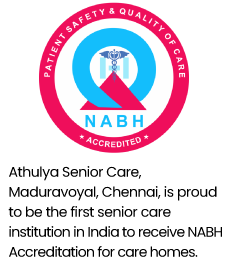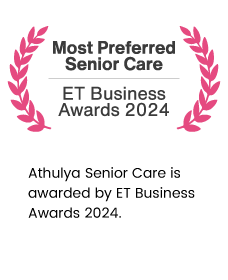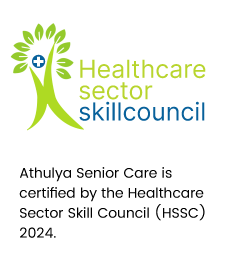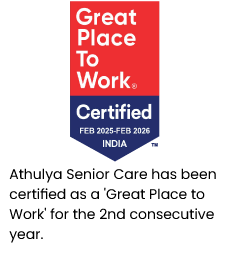Aging is a natural part of life and comes with unique health considerations. As we age, our bodies undergo various changes that can increase our susceptibility to certain health conditions. This is why regular health screenings become increasingly crucial for seniors. These screenings can help detect potential health issues early on, allowing for timely intervention and management, ultimately promoting a healthier and more fulfilling life in our golden years. In this blog, let’s explore the importance of health screenings, a list of screenings, and proactive measures that you can take with the help of expert care at senior care facilities or home healthcare services.
So, why are health screenings important for seniors?
Health screenings play a vital role in preventive healthcare for seniors. They offer several benefits:
- Early Detection: Many age-related diseases, such as cancer, heart disease, and osteoporosis, often don’t present noticeable symptoms in their early stages. Screenings can identify these conditions before, making treatment more effective and improving outcomes.
- Personalized Care: Screenings provide valuable insights into an individual’s health status, allowing healthcare providers to tailor preventive strategies and treatment plans based on specific needs and risk factors.
- Improved Quality of Life: By addressing health concerns proactively, seniors can maintain their independence, mobility, and overall well-being, leading to a higher quality of life.
Essential Health Screenings for Seniors:
While the specific screenings recommended may vary based on individual health history and risk factors, some essential screenings are generally recommended for seniors:
- Cardiovascular Health:
- Blood Pressure: Regular blood pressure checks are essential to detect hypertension, a major risk factor for heart disease and stroke.
- Cholesterol Levels: Monitoring cholesterol levels helps assess the risk of heart disease and guides lifestyle modifications or medication if necessary.
- Electrocardiogram (ECG): An ECG can evaluate the heart’s electrical activity and detect abnormalities.
- Cancer Screenings:
- Mammograms: Women should undergo regular mammograms to screen for breast cancer based on their healthcare provider’s recommendations.
- Colonoscopy: Regular colonoscopies are recommended to screen for colorectal cancer, typically starting at age 45 or 50.
- Prostate Exam: Men should discuss prostate cancer screening options with their healthcare provider, including prostate-specific antigen (PSA) tests and digital rectal exams.
- Lung Cancer Screening: For individuals with a history of smoking, lung cancer screening with low-dose CT scans may be recommended.
- Bone Health:
- Bone Density Test: This test measures bone mineral density and helps diagnose osteoporosis, which weakens bones and increases the risk of fractures.
- Eye Health:
- Comprehensive Eye Exam: Regular eye exams are crucial for detecting age-related eye diseases such as cataracts, glaucoma, and macular degeneration, which can lead to vision loss.
- Hearing Health:
- Hearing Test: Hearing loss is common in older adults. Regular hearing tests can help identify hearing problems and determine appropriate interventions.
- Mental Health:
- Depression Screening: Depression is a common but often overlooked issue in seniors. Screening for depression can help ensure timely intervention and support.
- Cognitive Assessment: Cognitive decline and dementia can affect seniors. Cognitive assessments can help detect any changes in brain function.
- Other Important Screenings:
- Diabetes Screening: Regular blood glucose tests can help detect diabetes, which, if left untreated, can lead to various complications.
- Thyroid Function Test: This test evaluates thyroid hormone levels and helps diagnose thyroid disorders.
- Kidney Function Test: This test assesses kidney function and helps detect kidney disease.
- Vaccinations: Seniors should stay up-to-date on recommended vaccinations, including influenza, pneumococcal, and shingles.
How to Stay Proactive About Health Screenings:
- Talk to Your Healthcare Provider: Discuss your health history and risk factors with your healthcare provider to determine the most appropriate screening schedule.
- Follow Screening Guidelines: Adhere to recommended screening guidelines based on age and risk factors.
- Maintain a Healthy Lifestyle: A healthy lifestyle, including a balanced diet, regular exercise, and avoiding smoking, can significantly reduce the risk of many age-related diseases.
Prioritizing health in the golden years is essential for maintaining independence, well-being, and quality of life. Regular health screenings are crucial in preventive healthcare for seniors, enabling early detection and timely intervention for potential health concerns. By staying proactive and following recommended screening guidelines, you can embrace aging with vitality and enjoy a fulfilling life.
To learn more about our senior care or home healthcare services or to schedule a home blood collection, please call us at 9884945900 or visit the Athulya Senior Care website.











